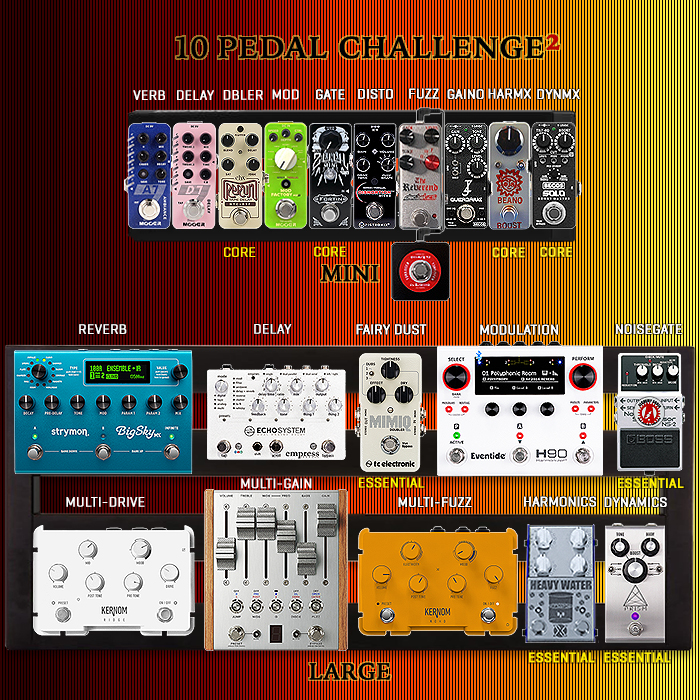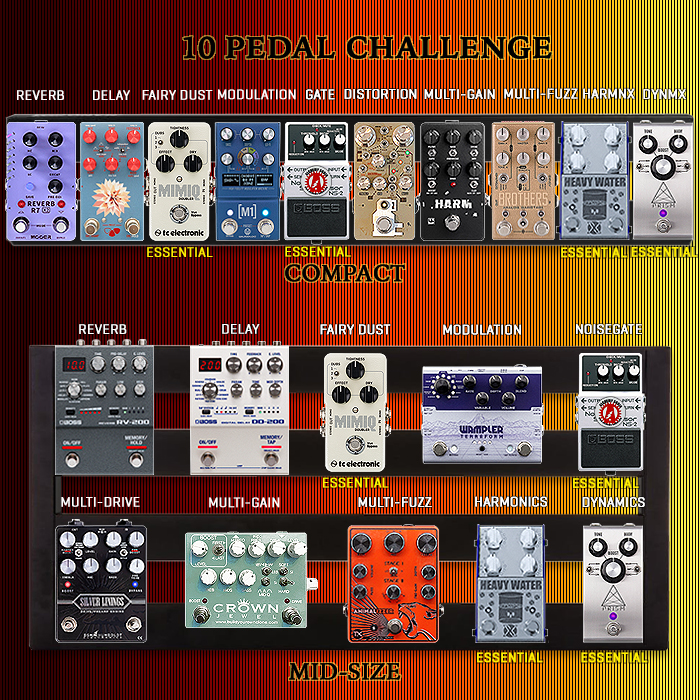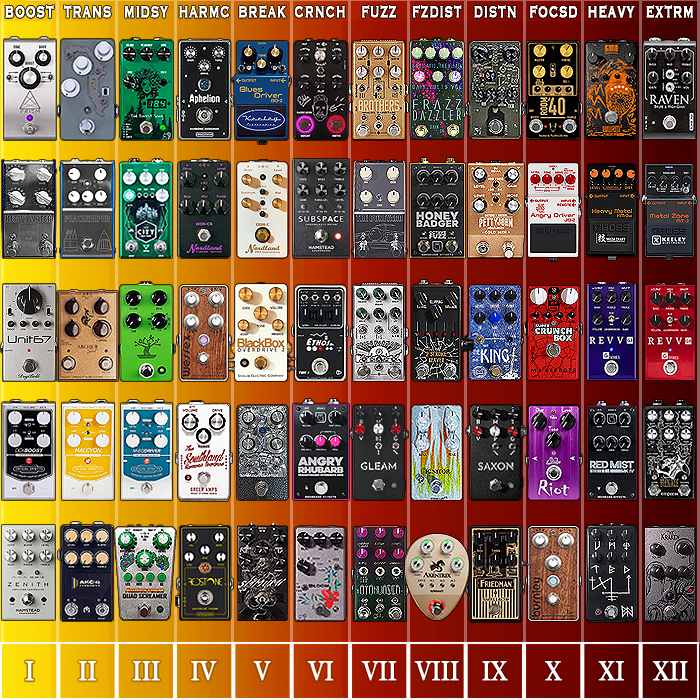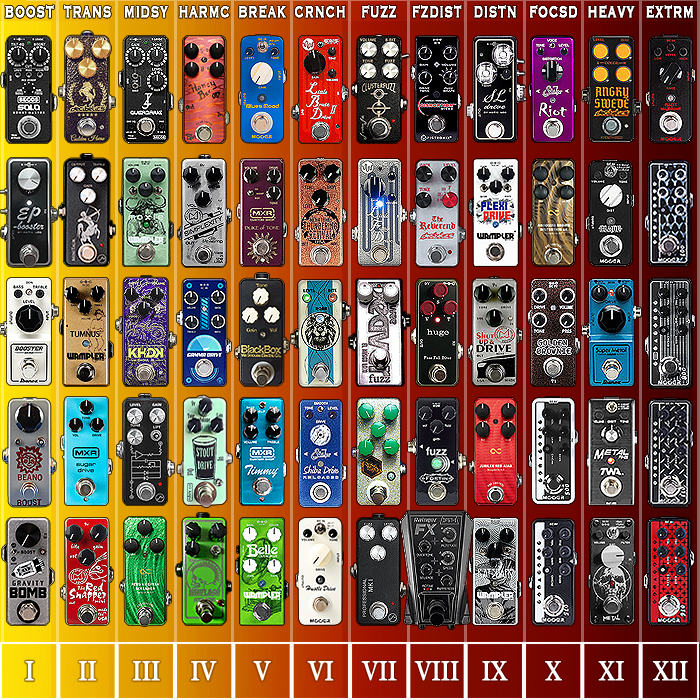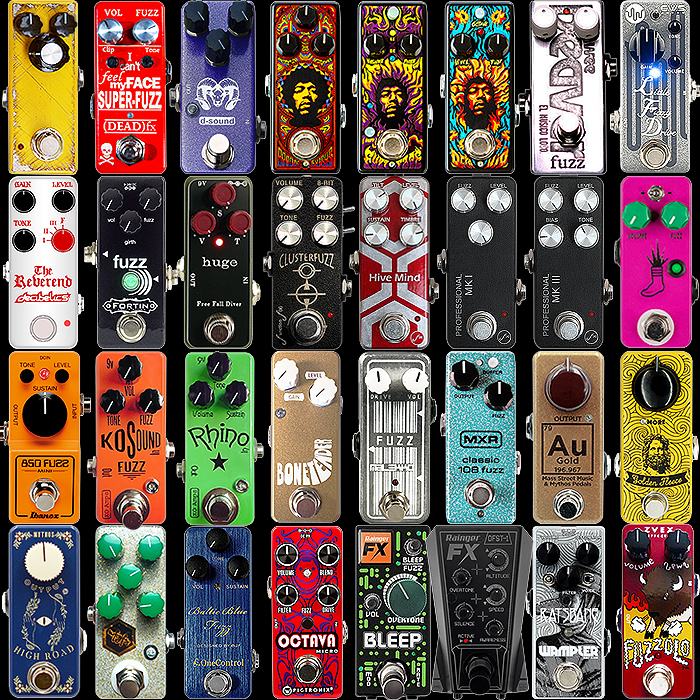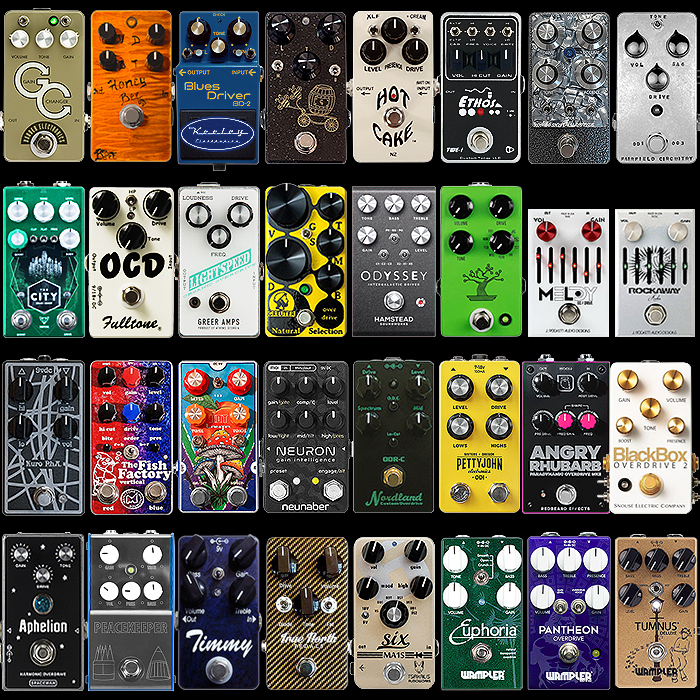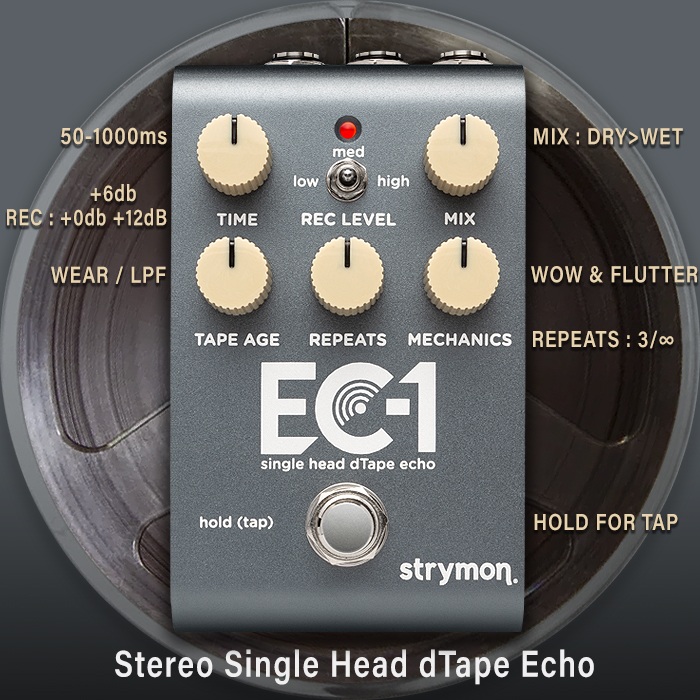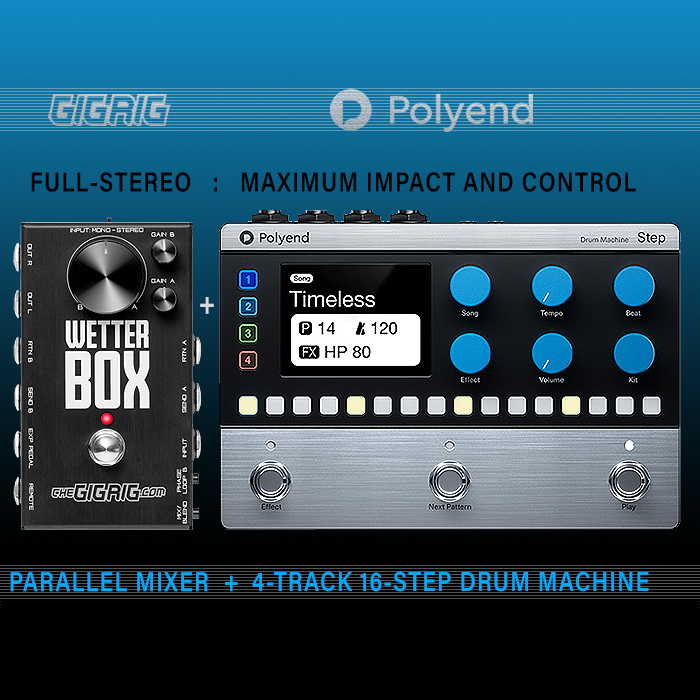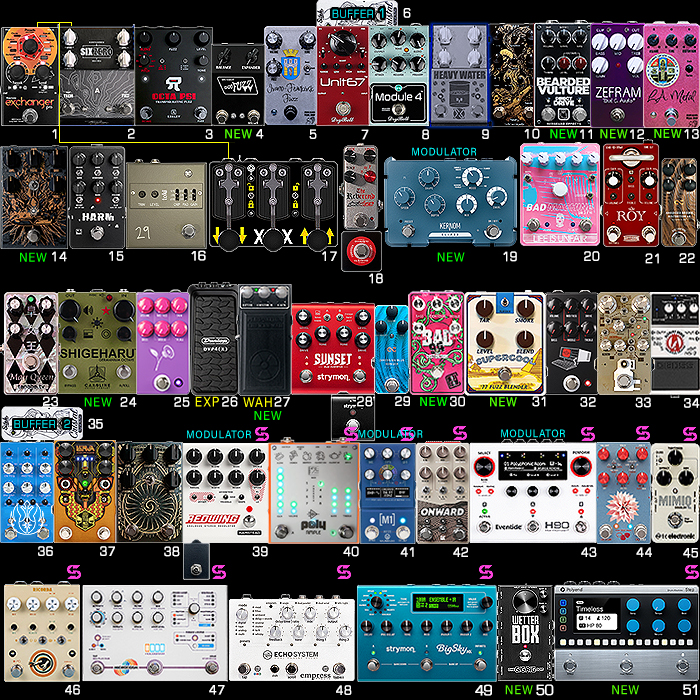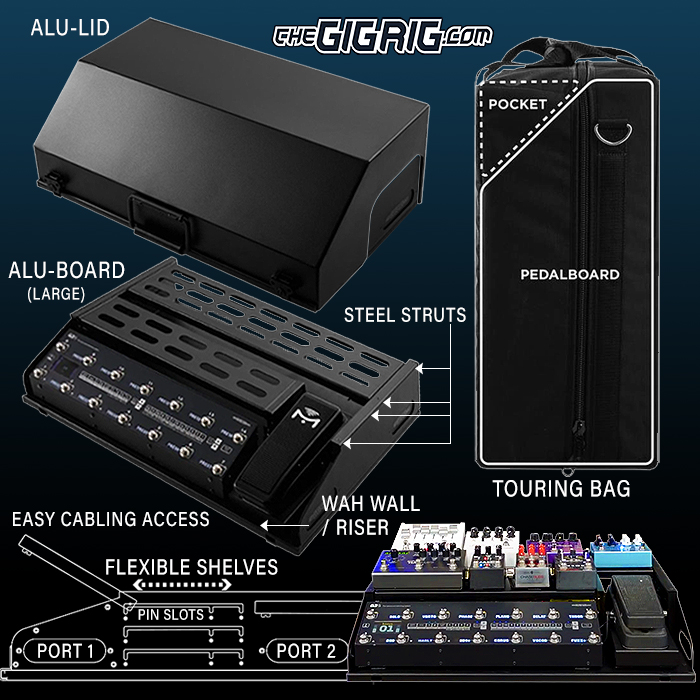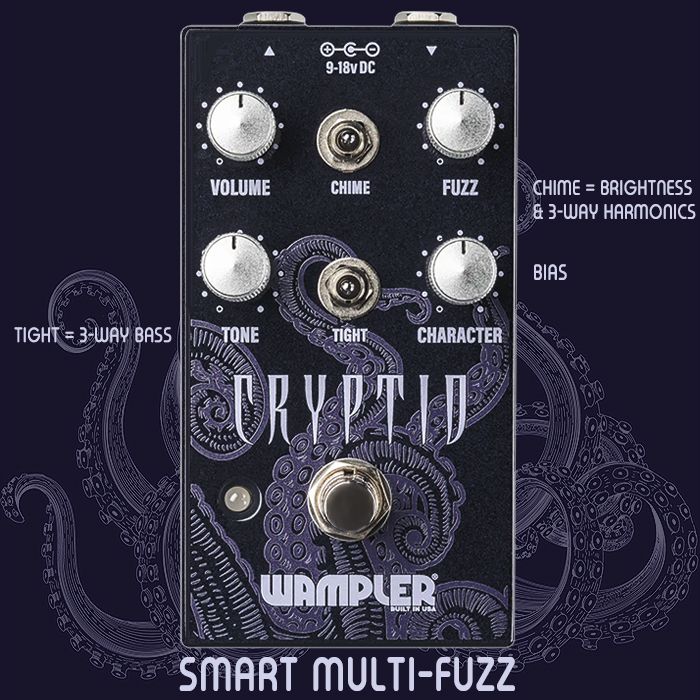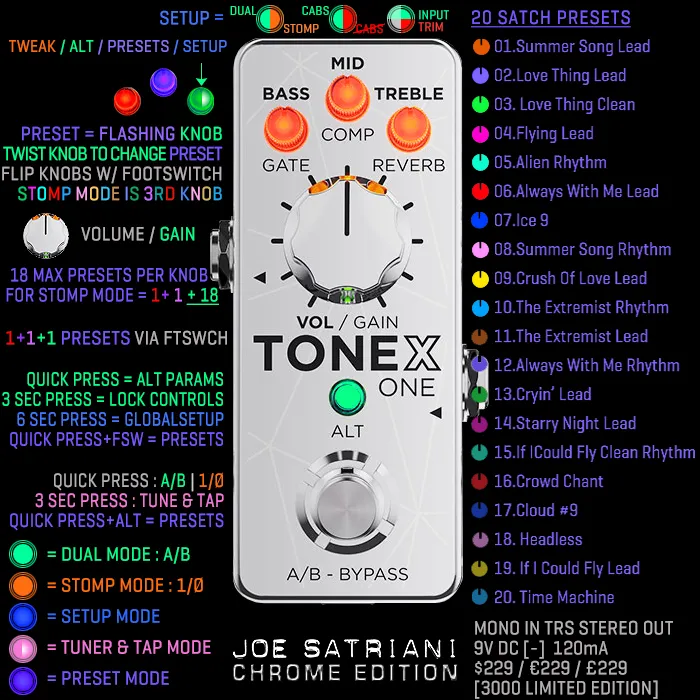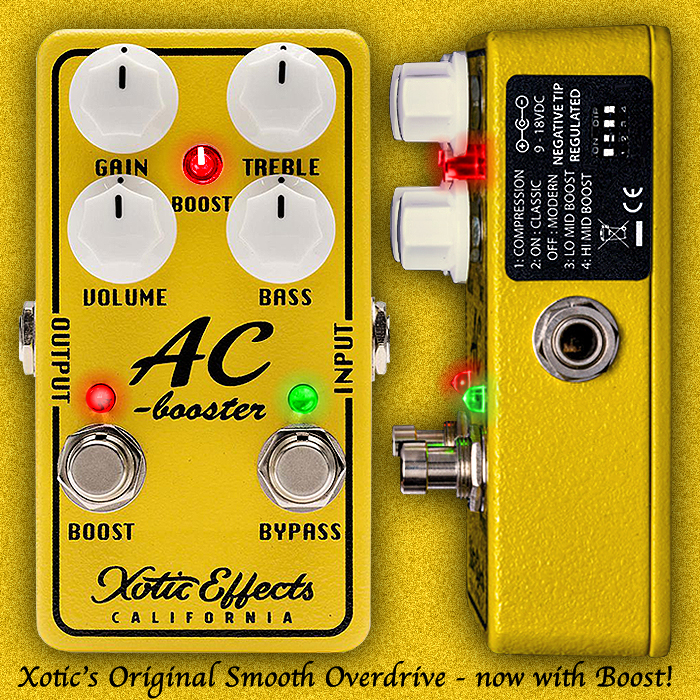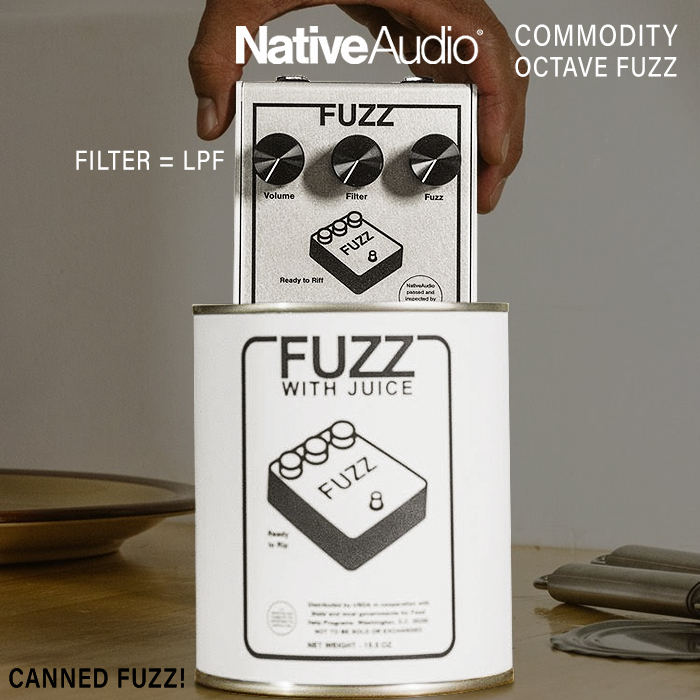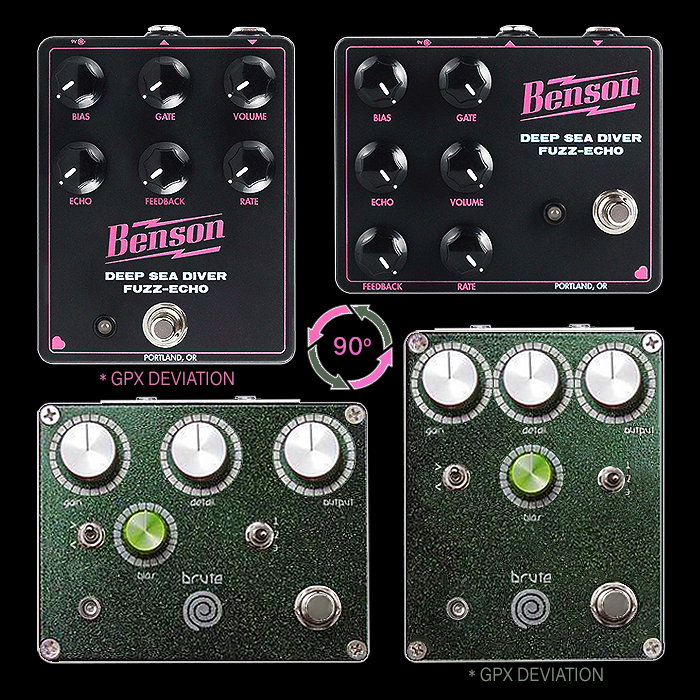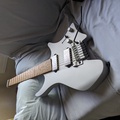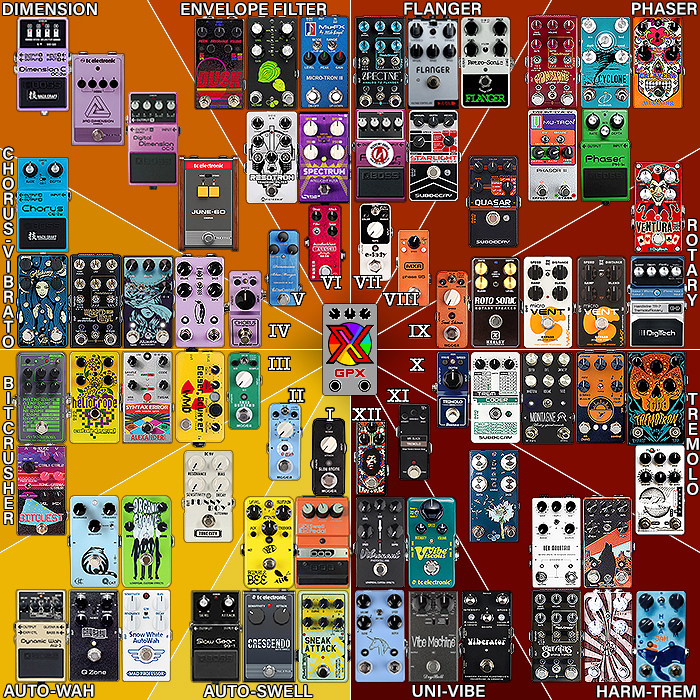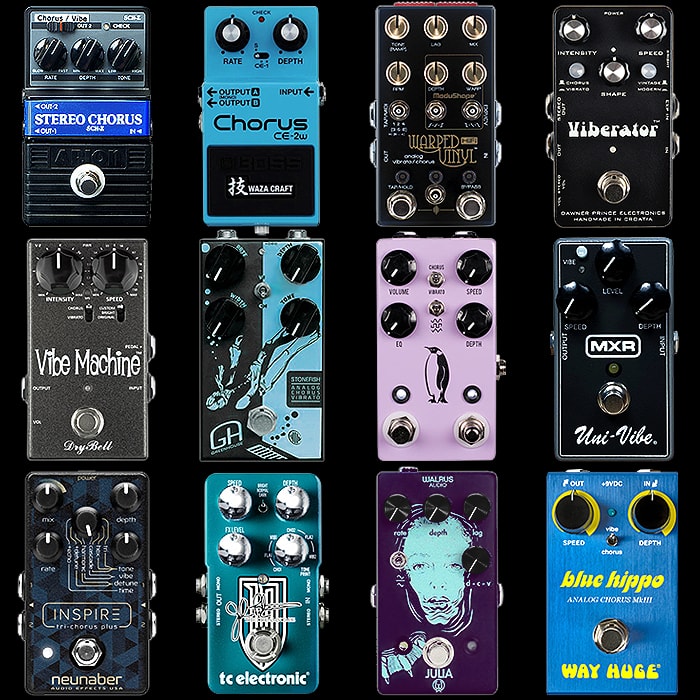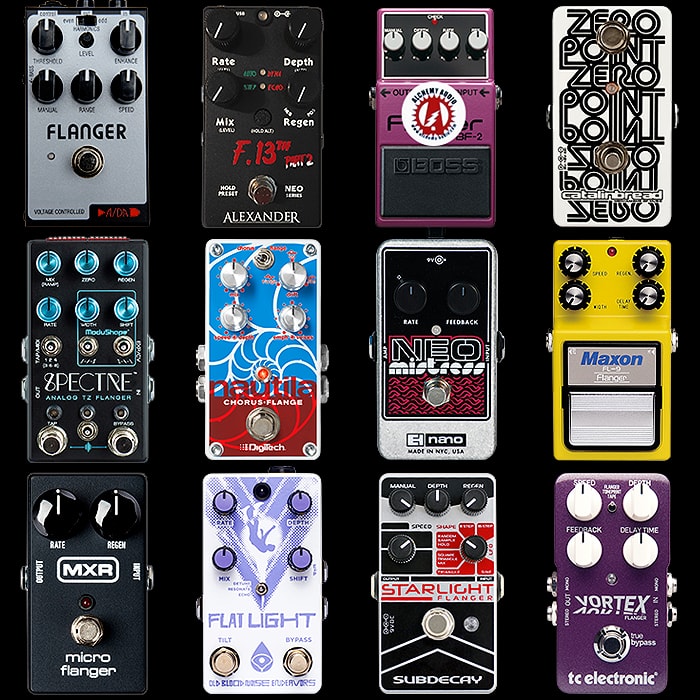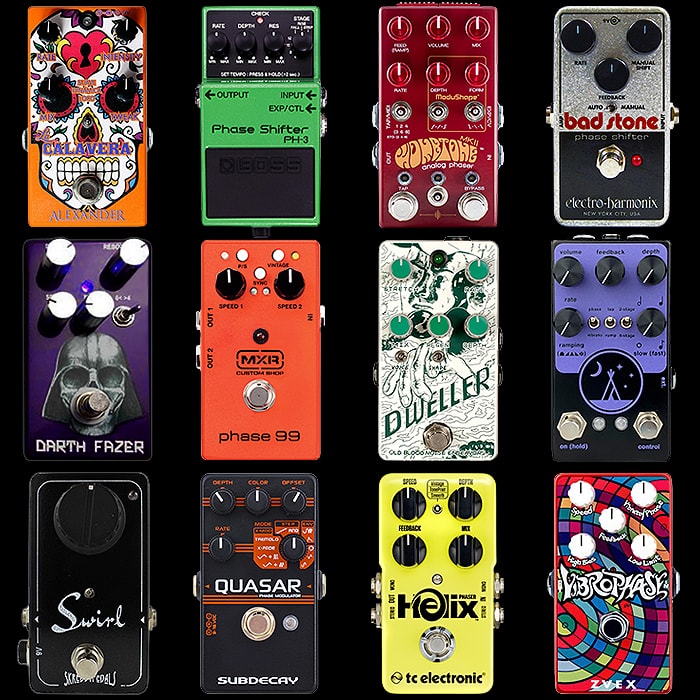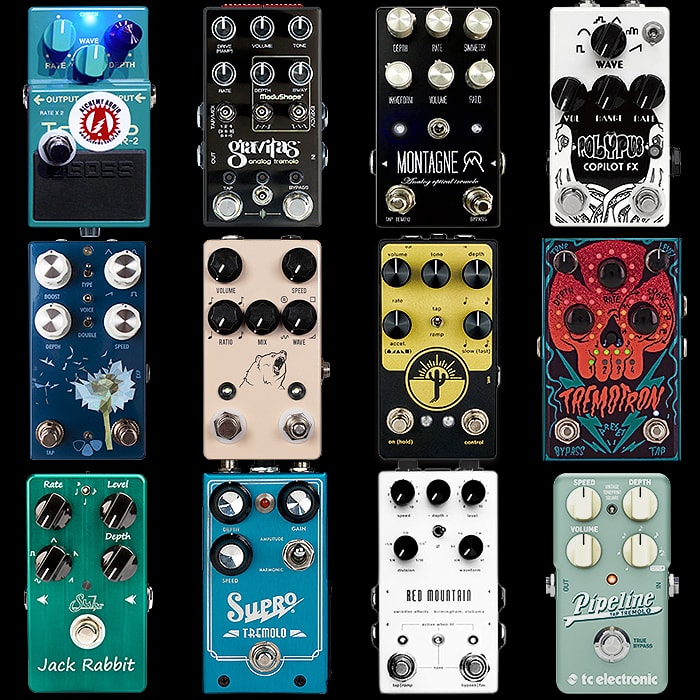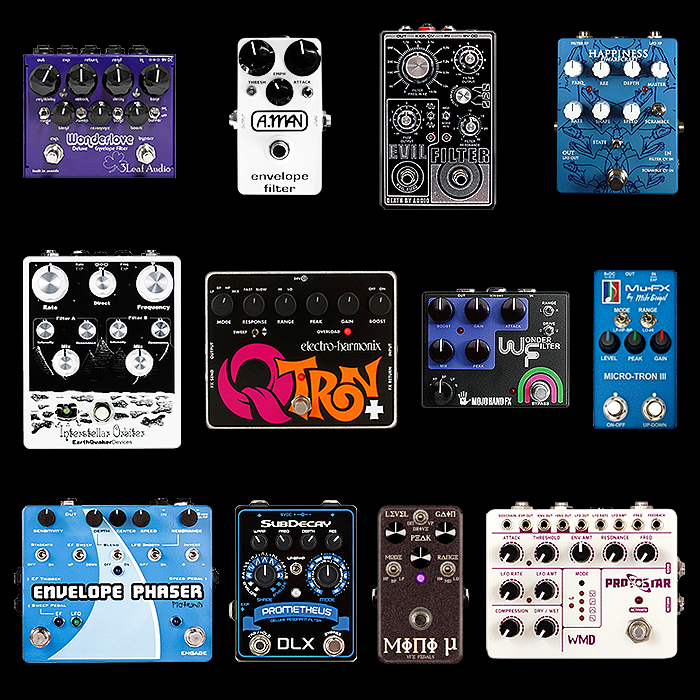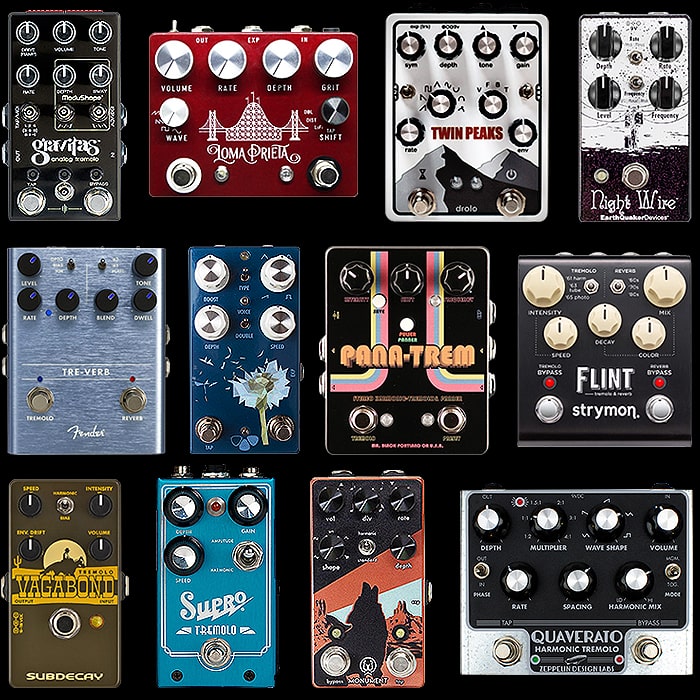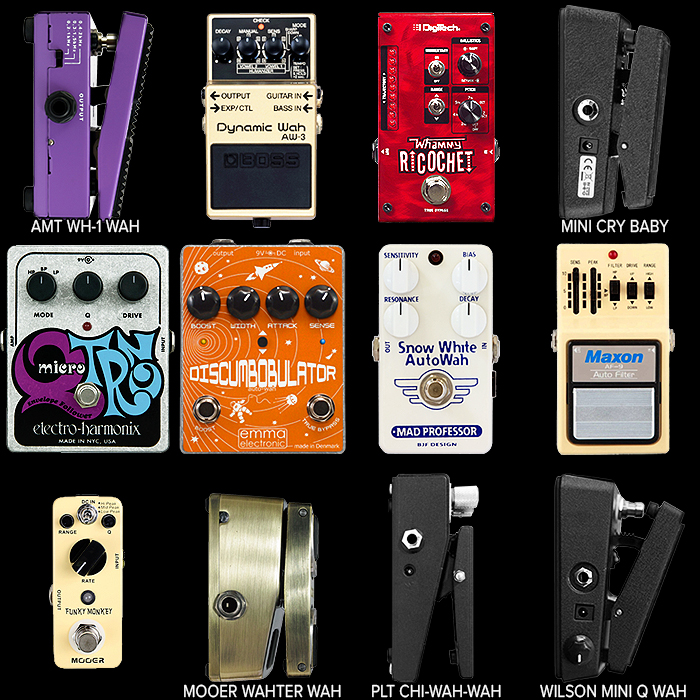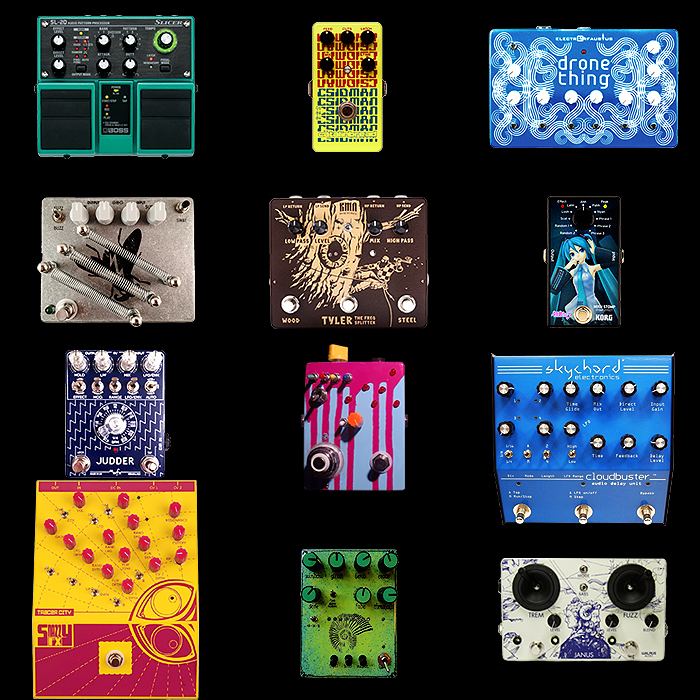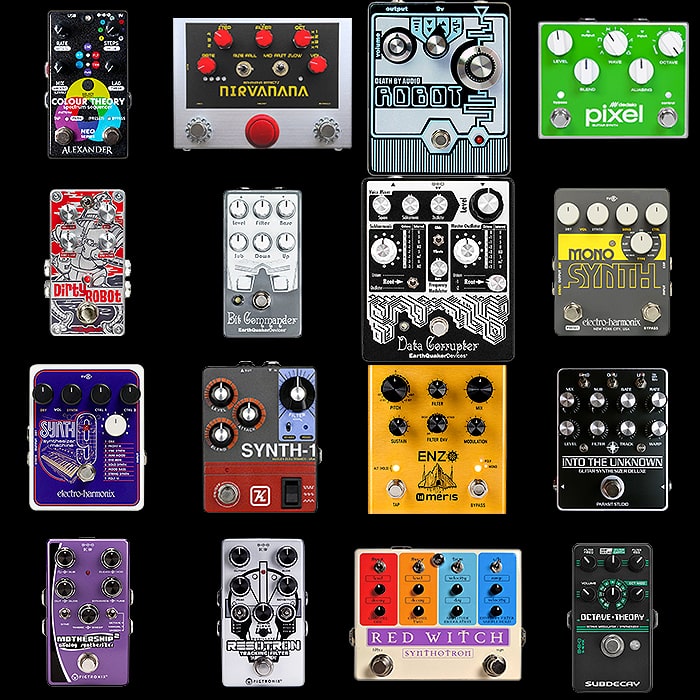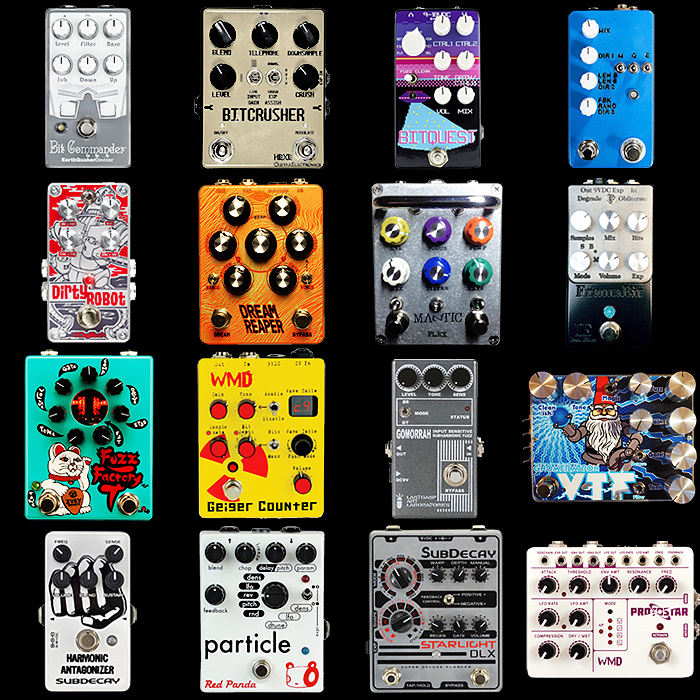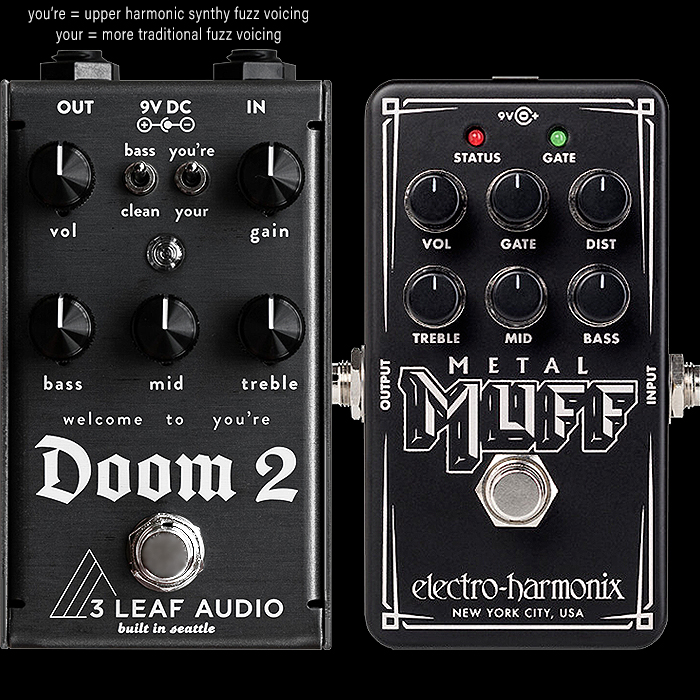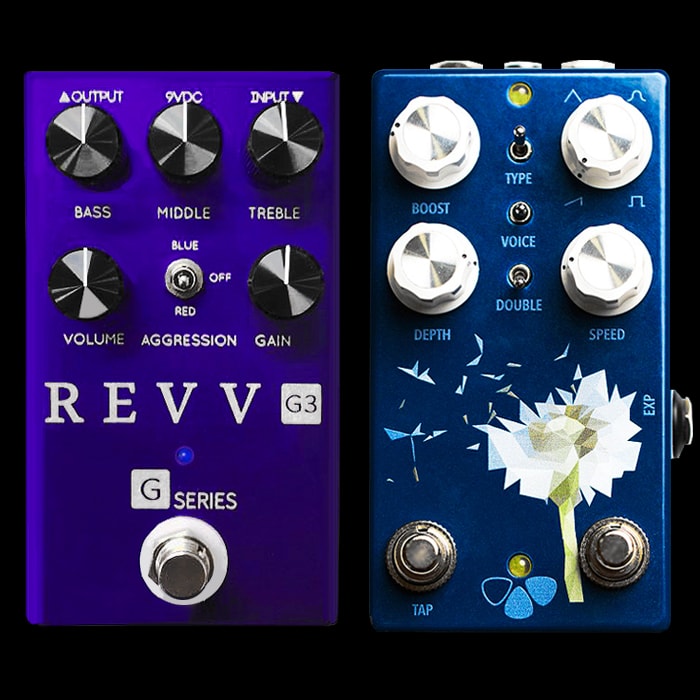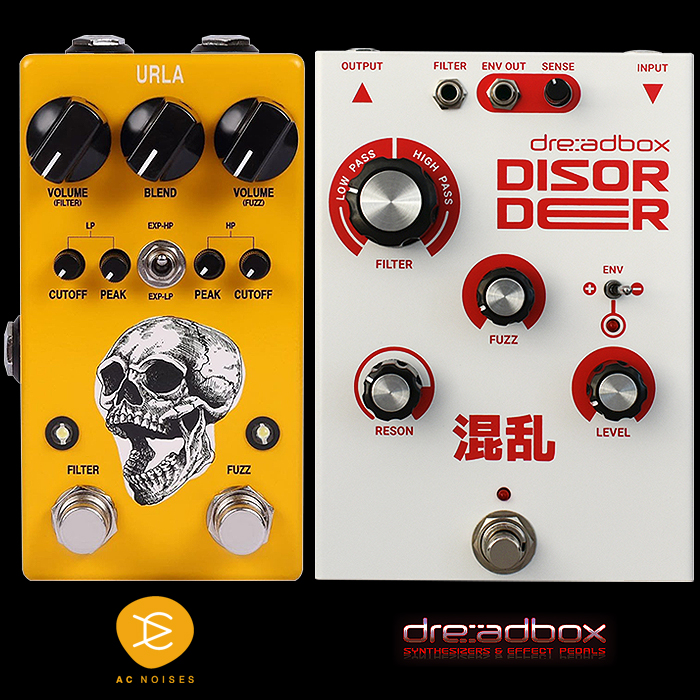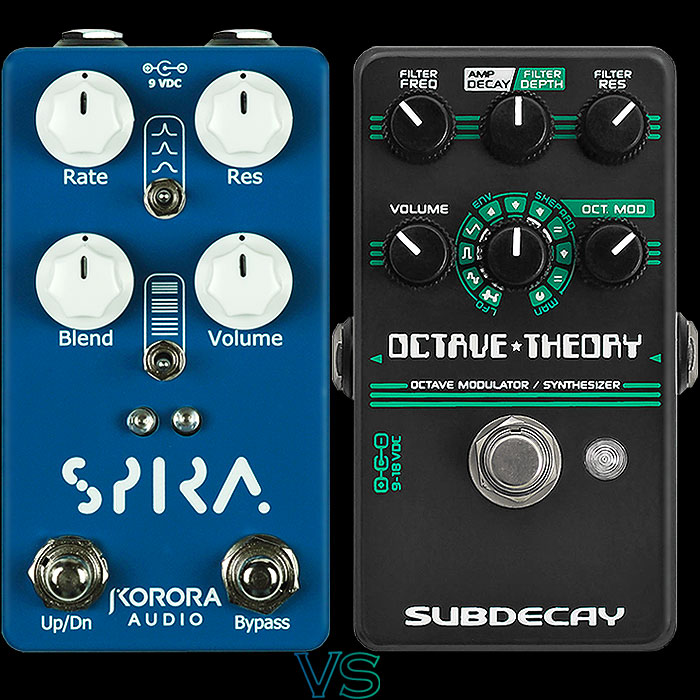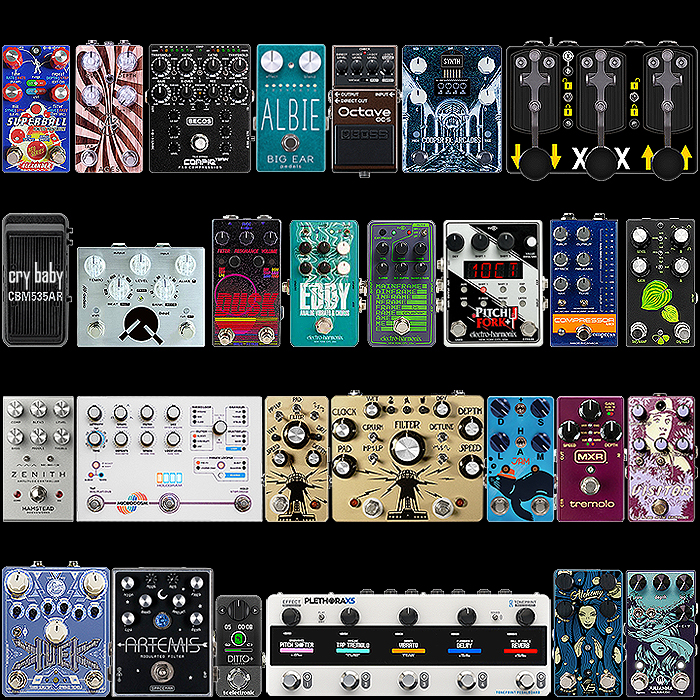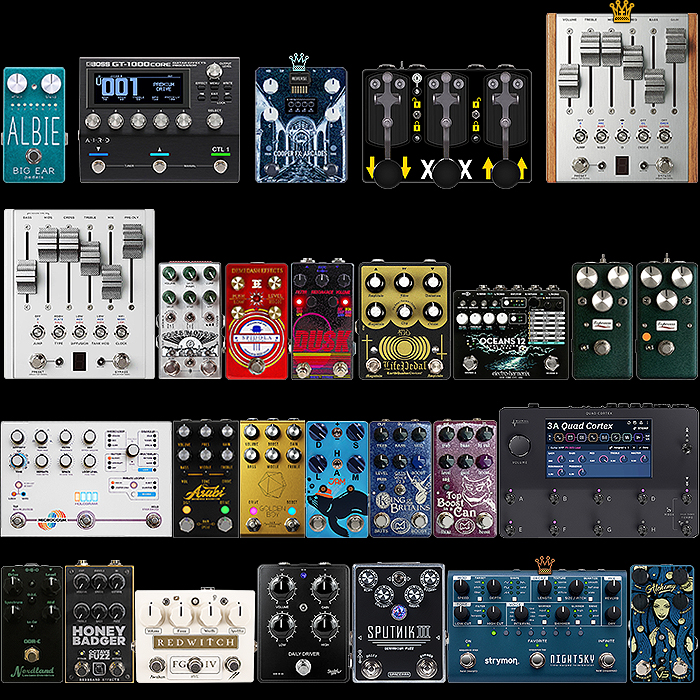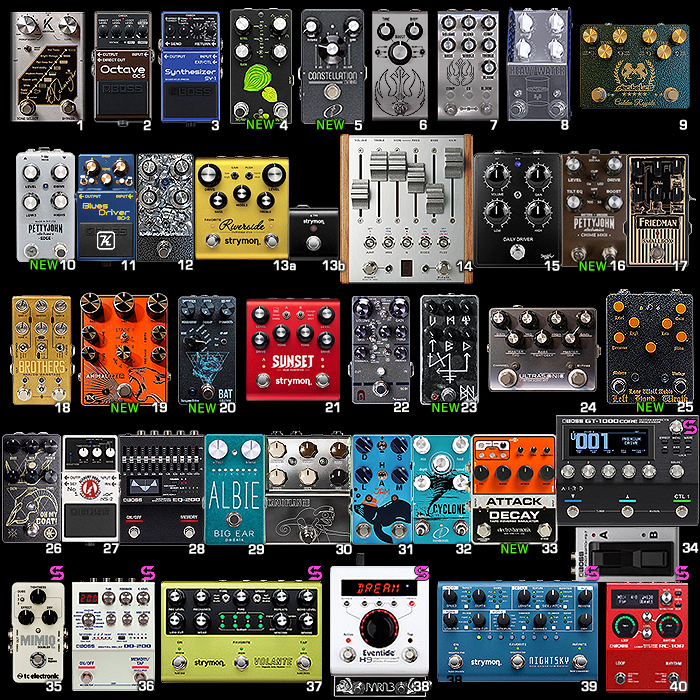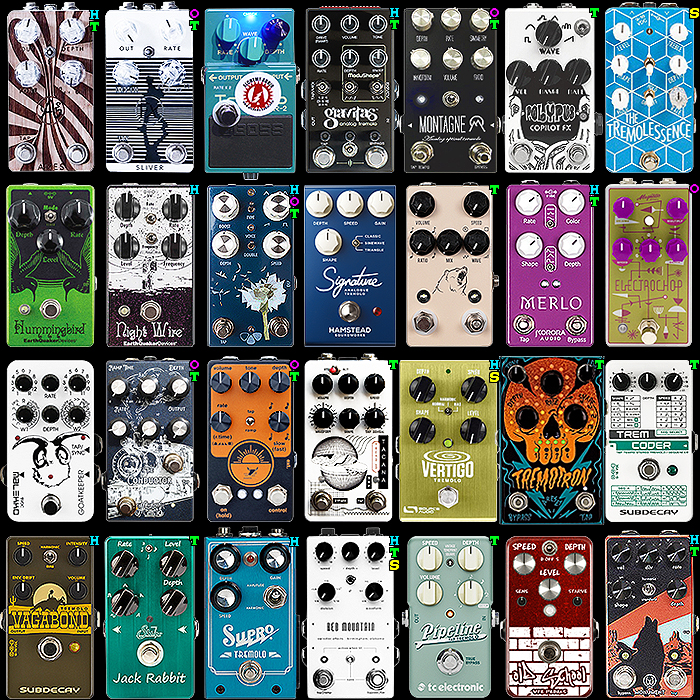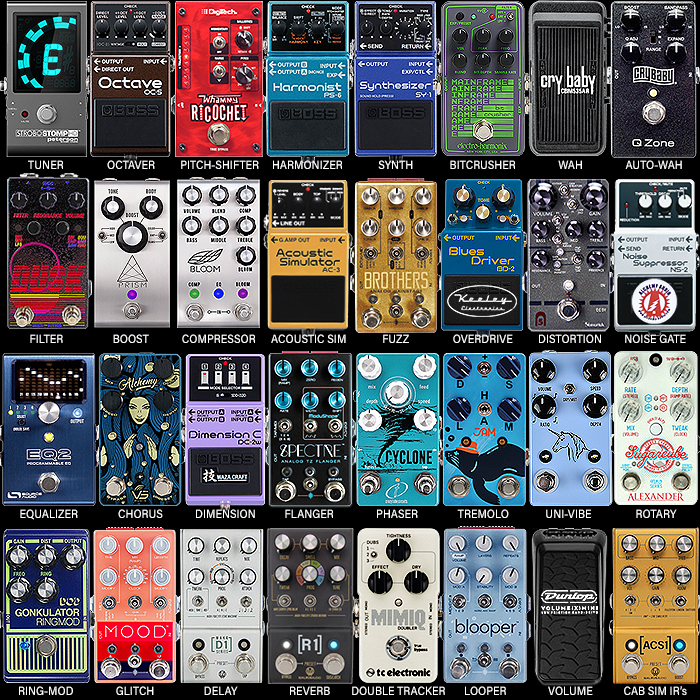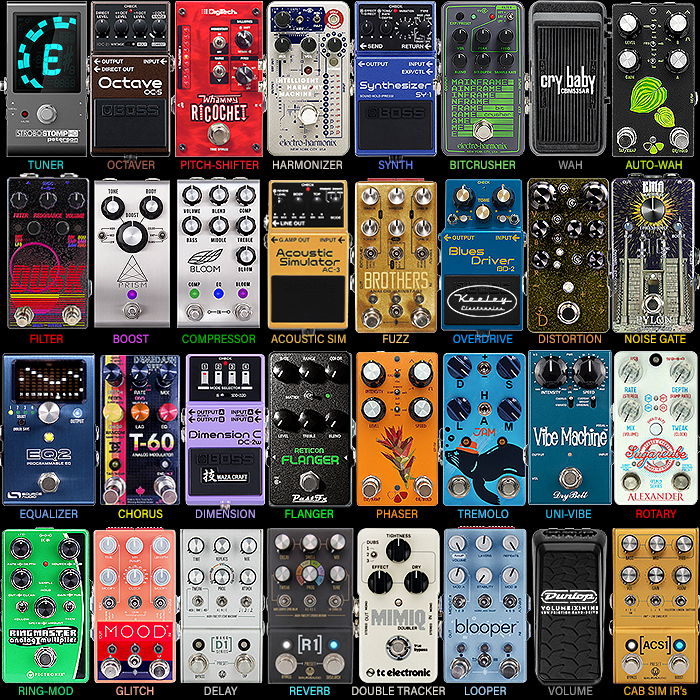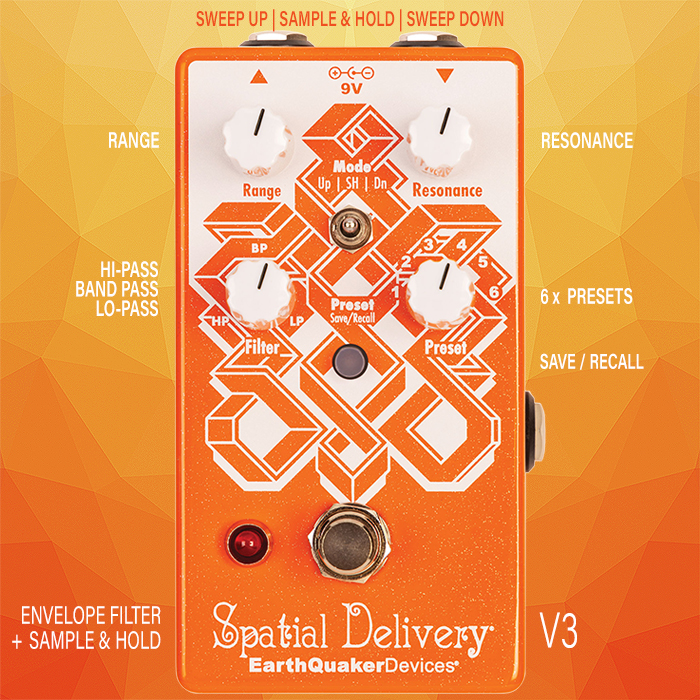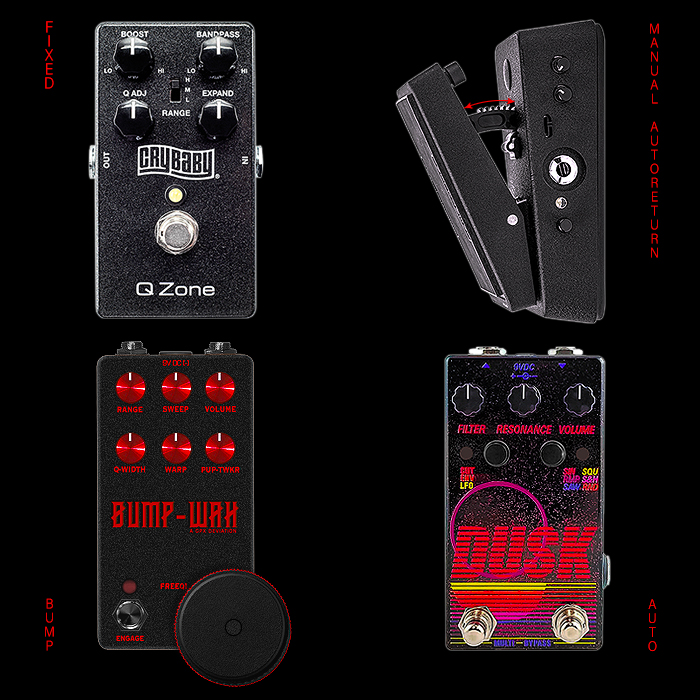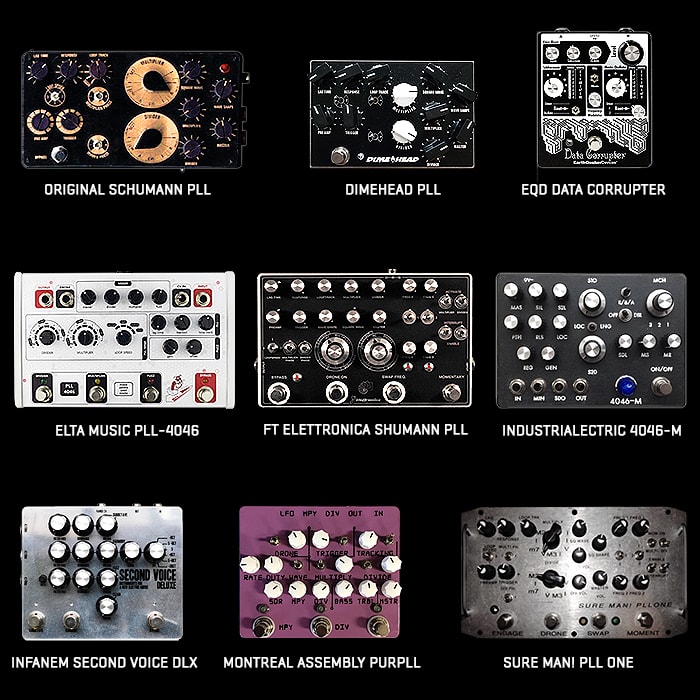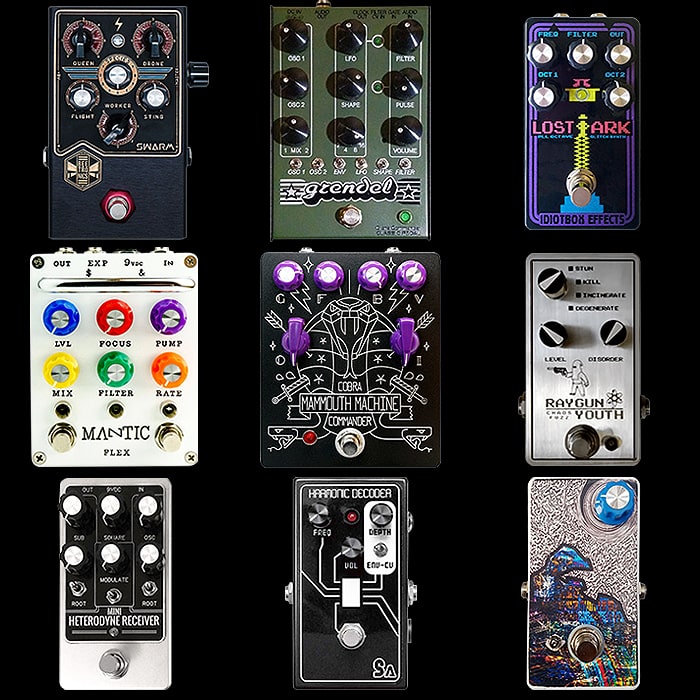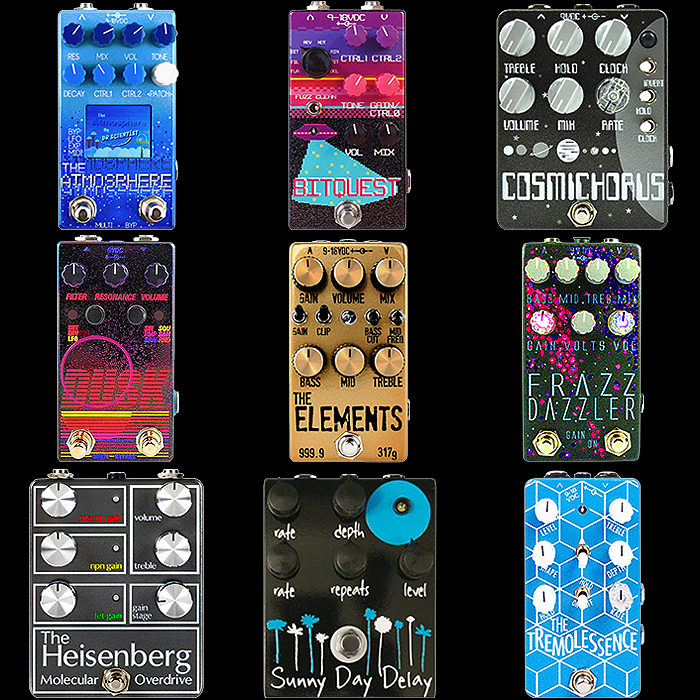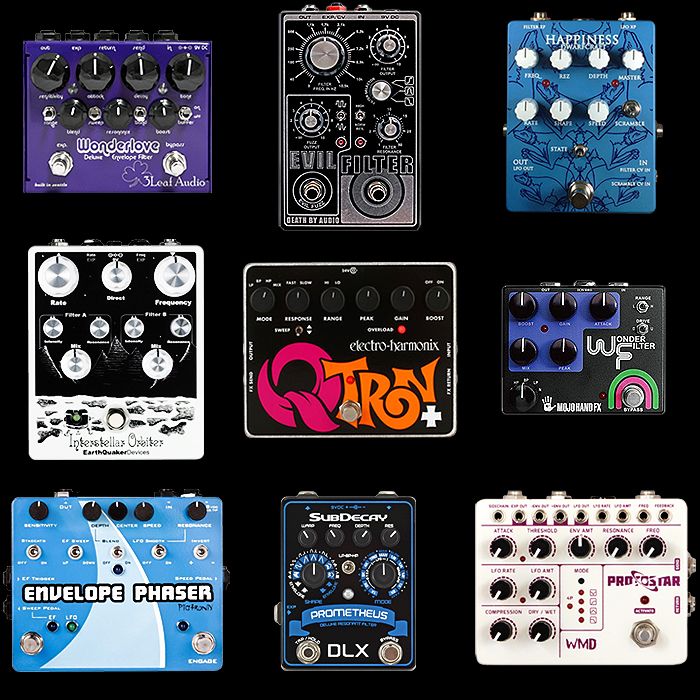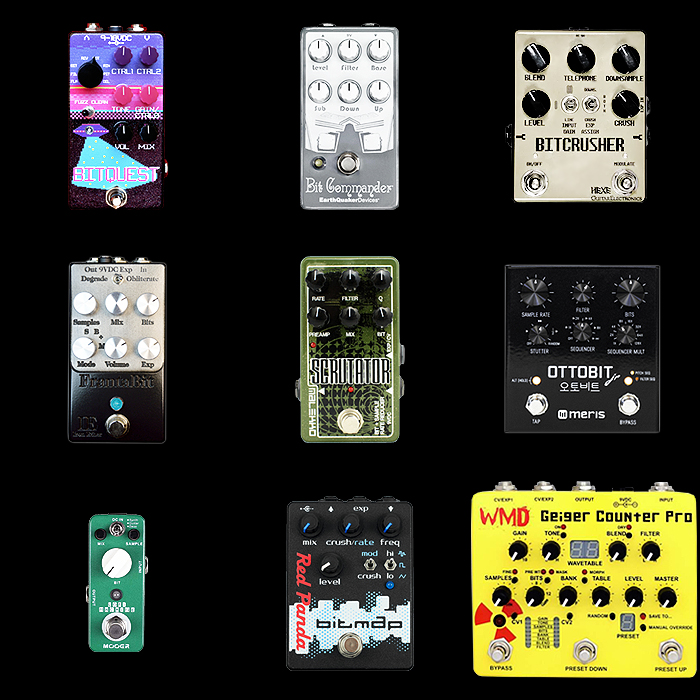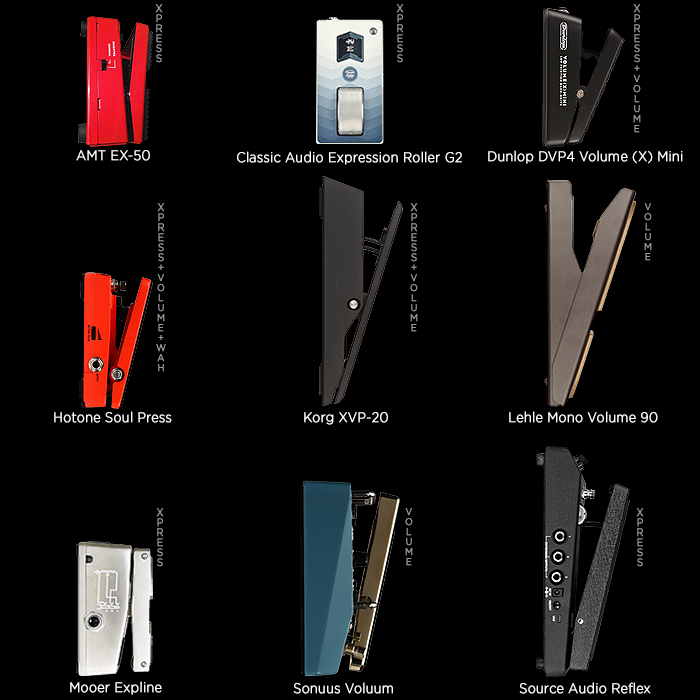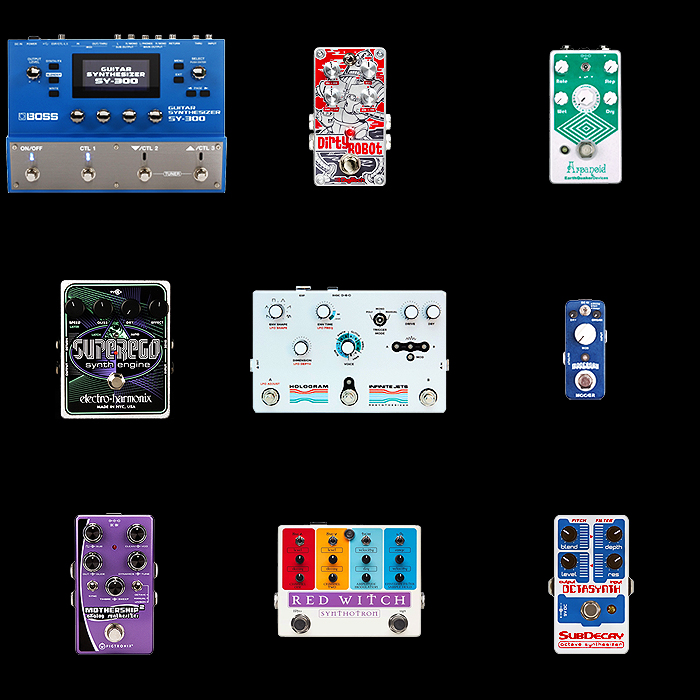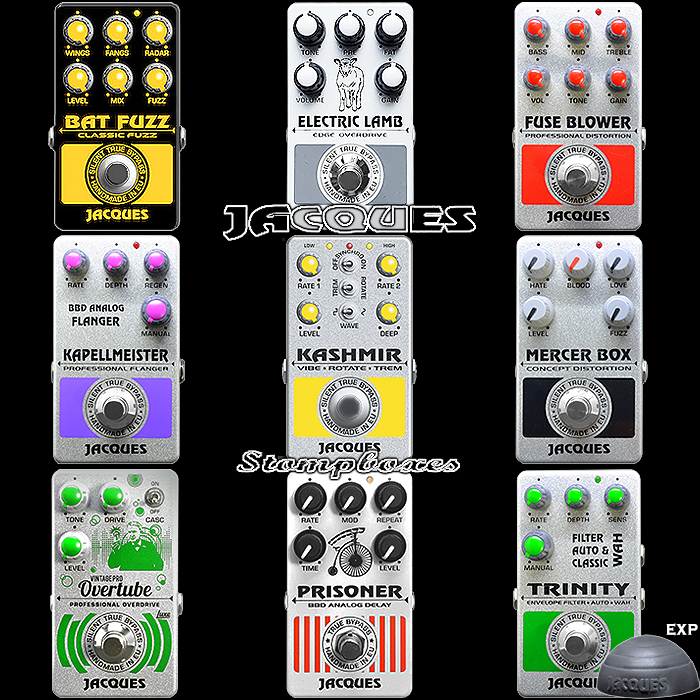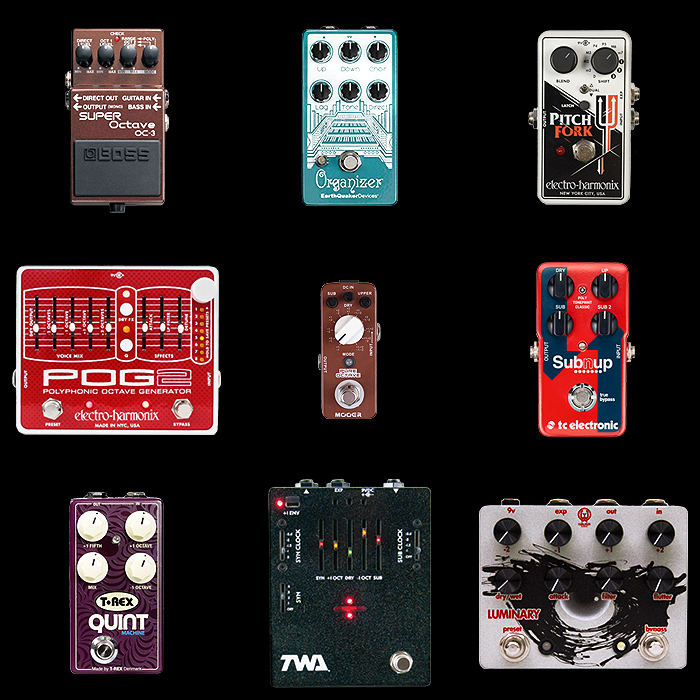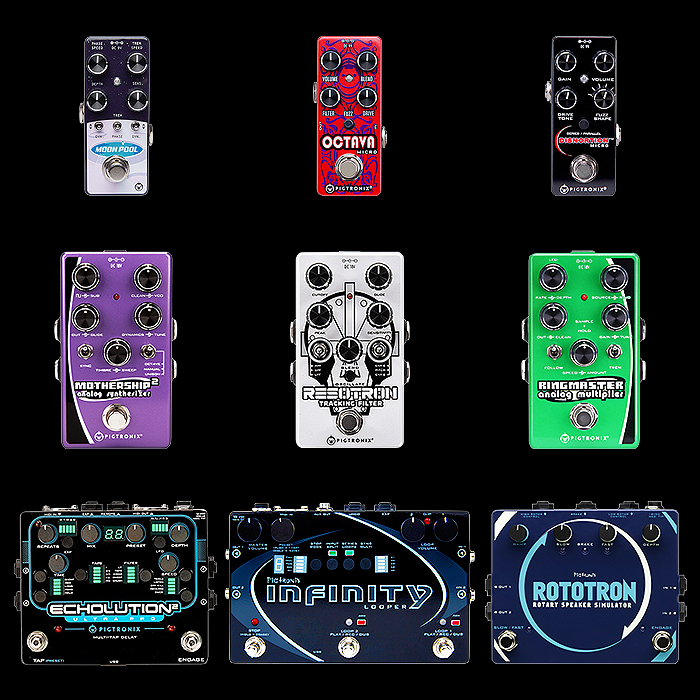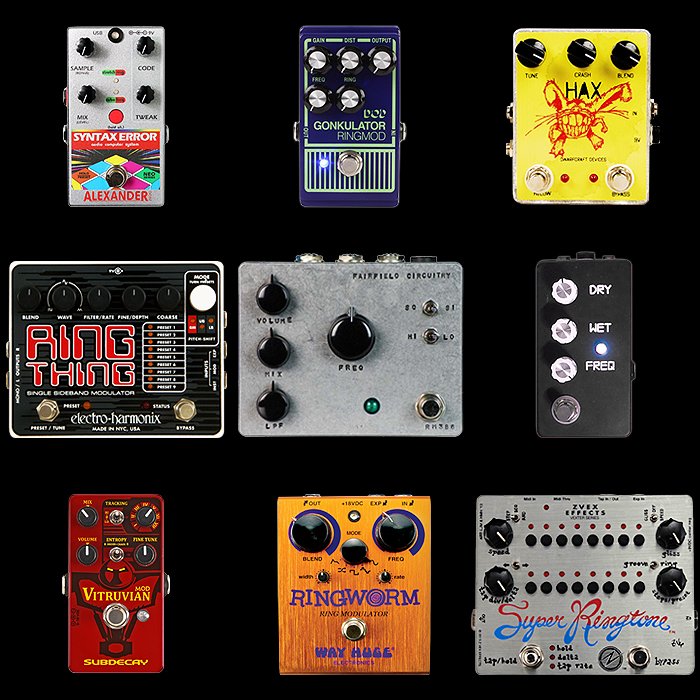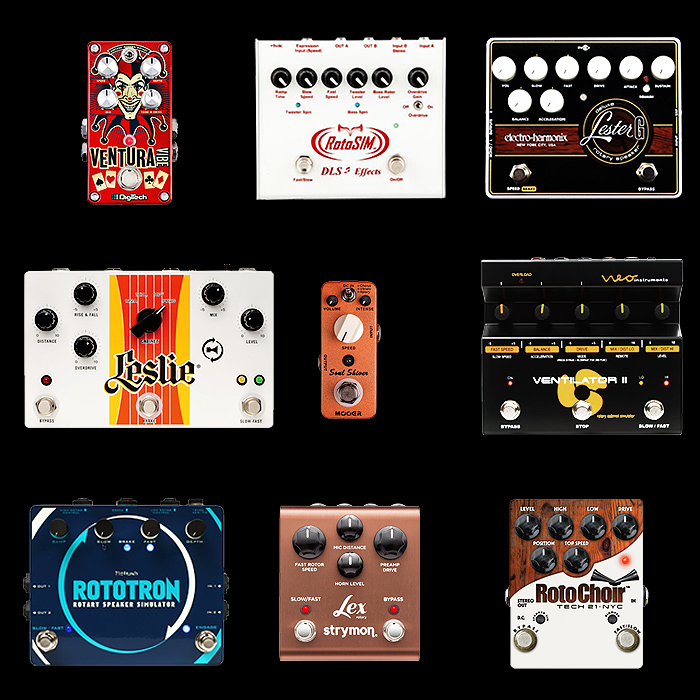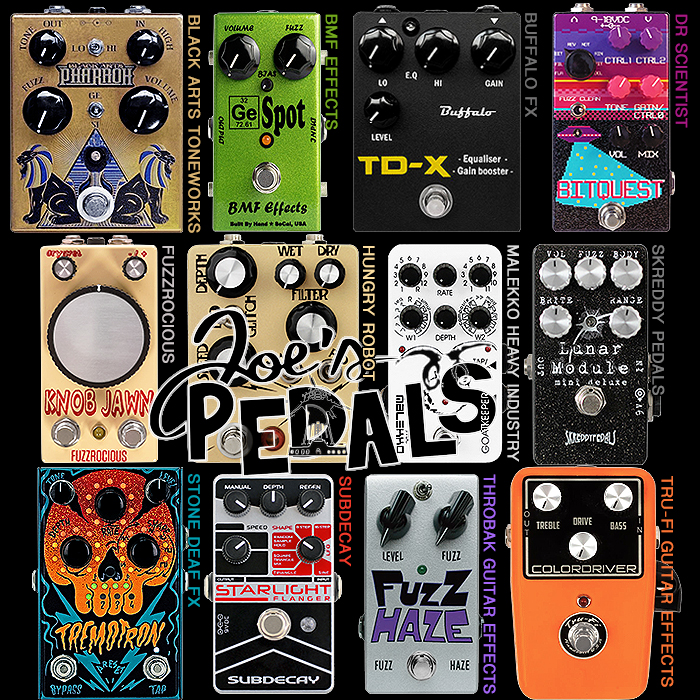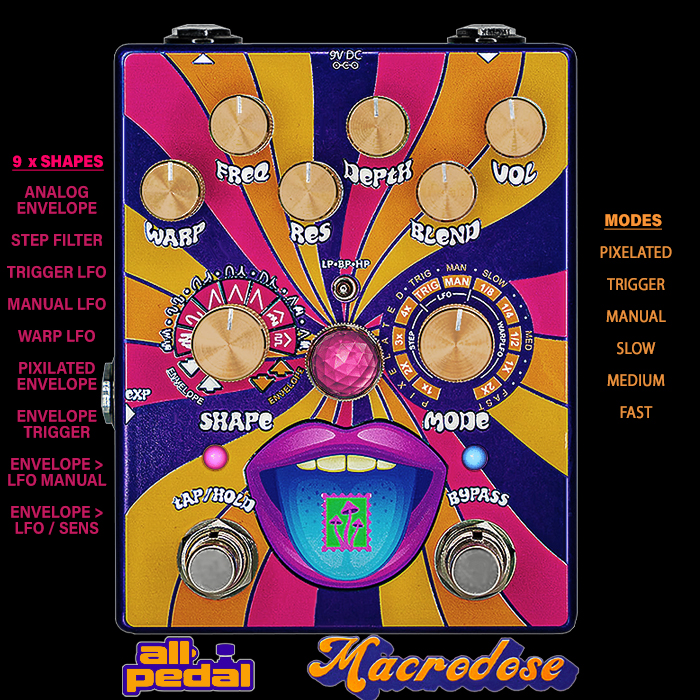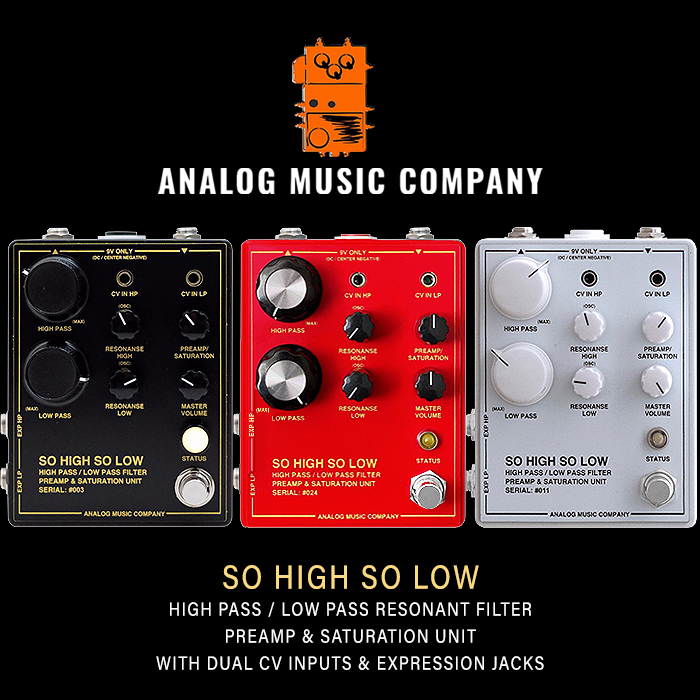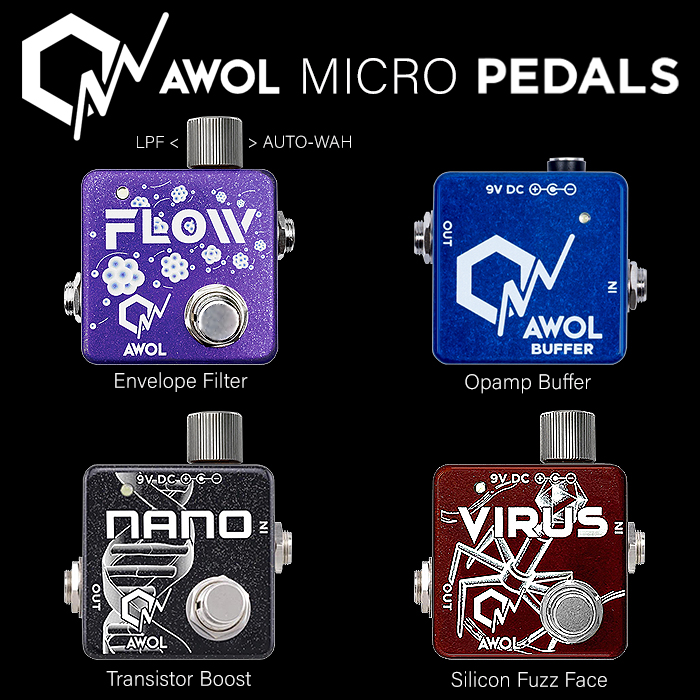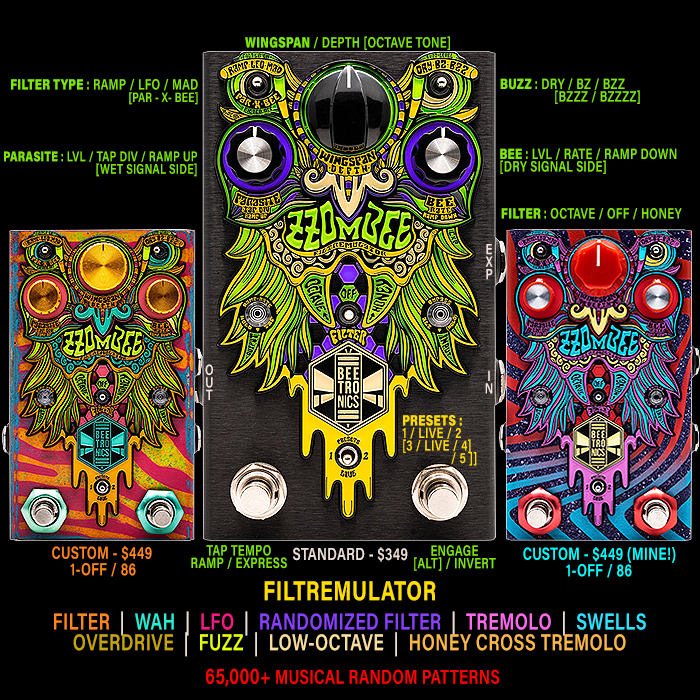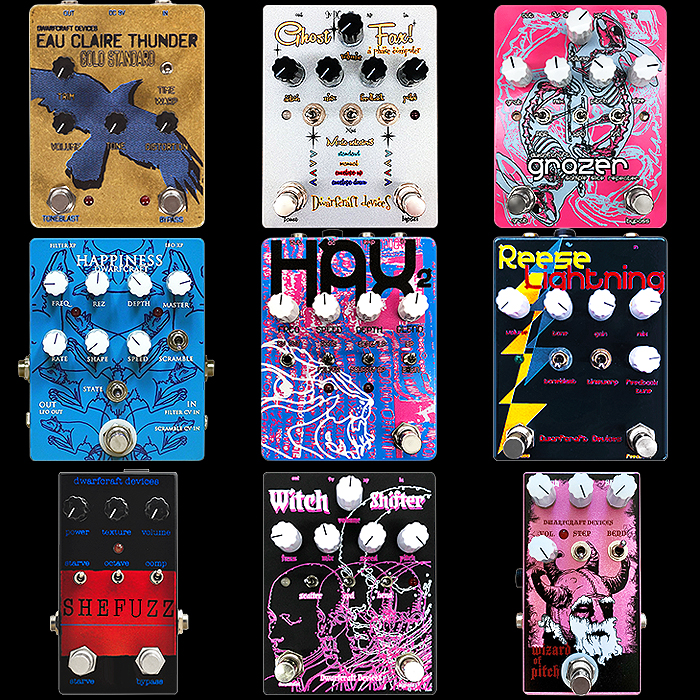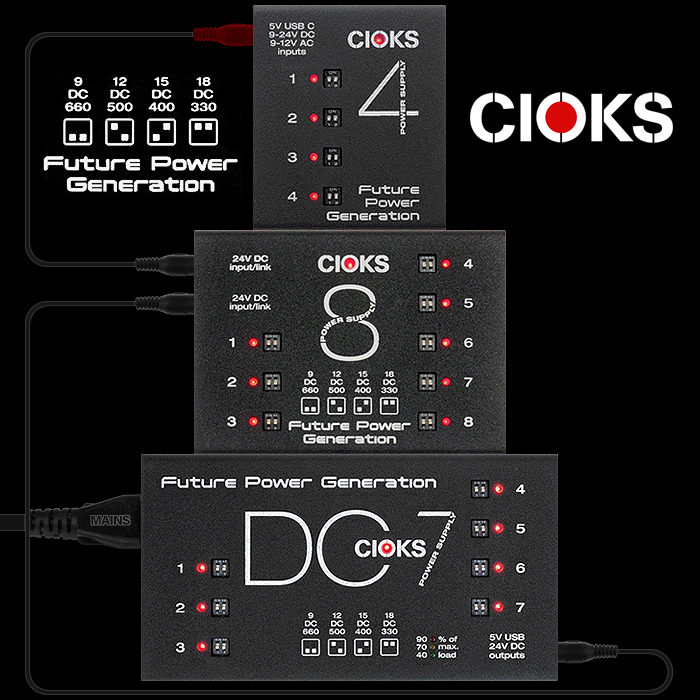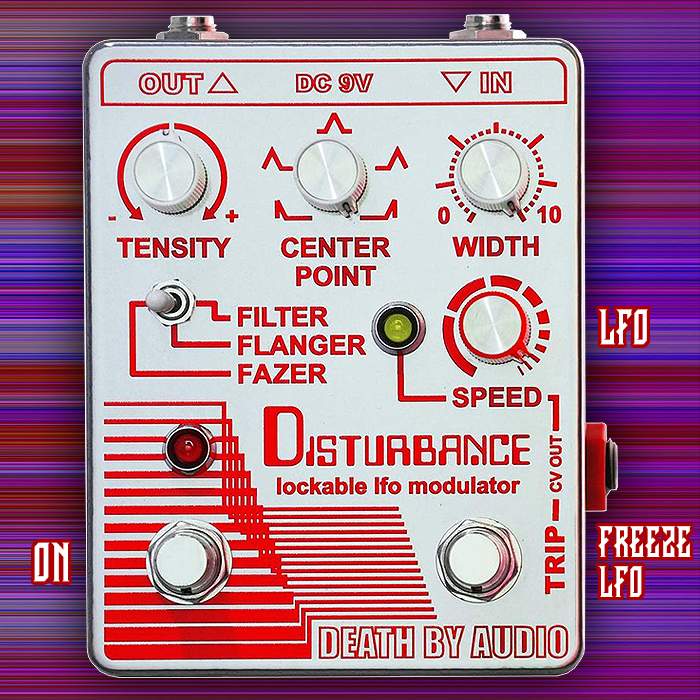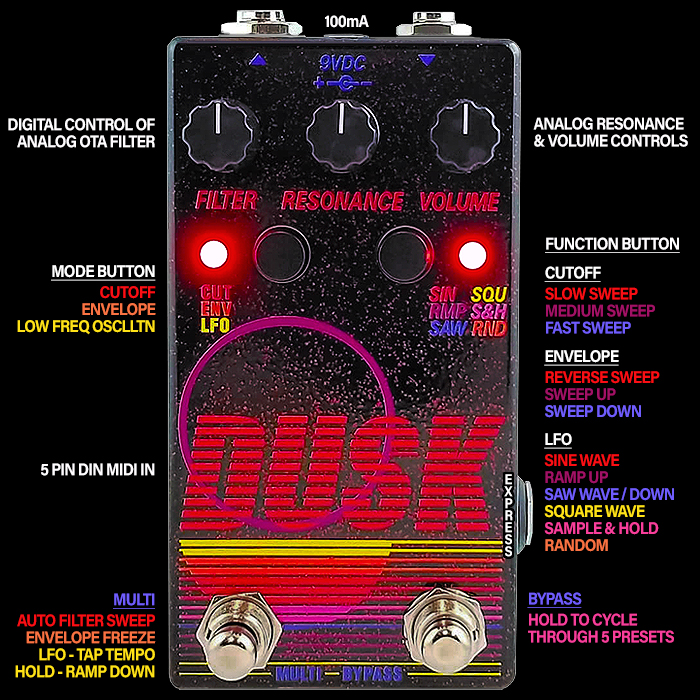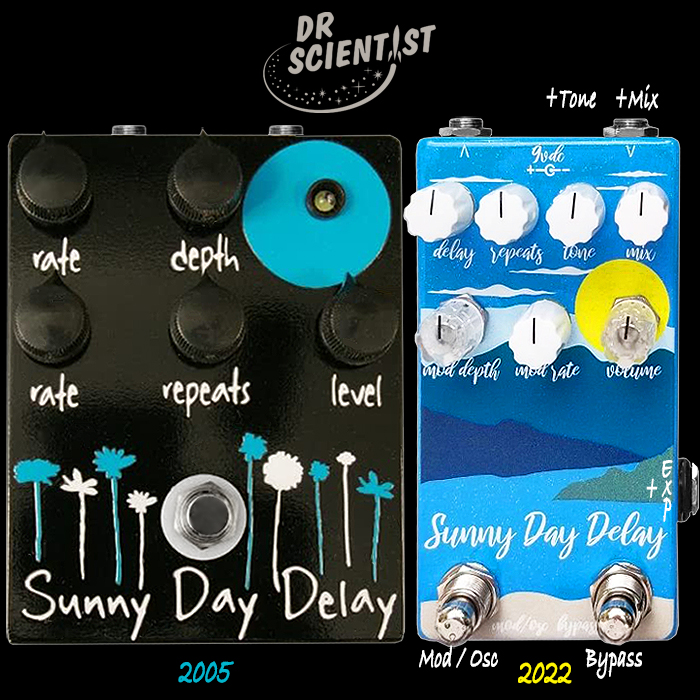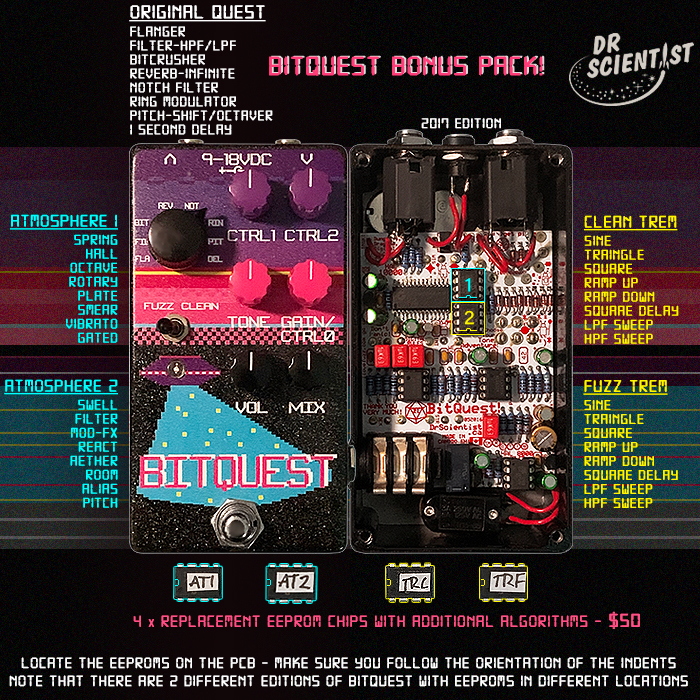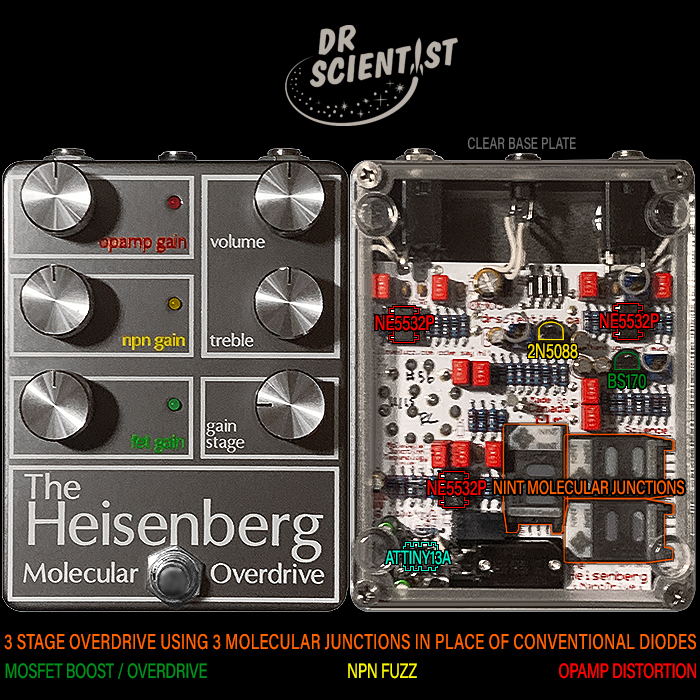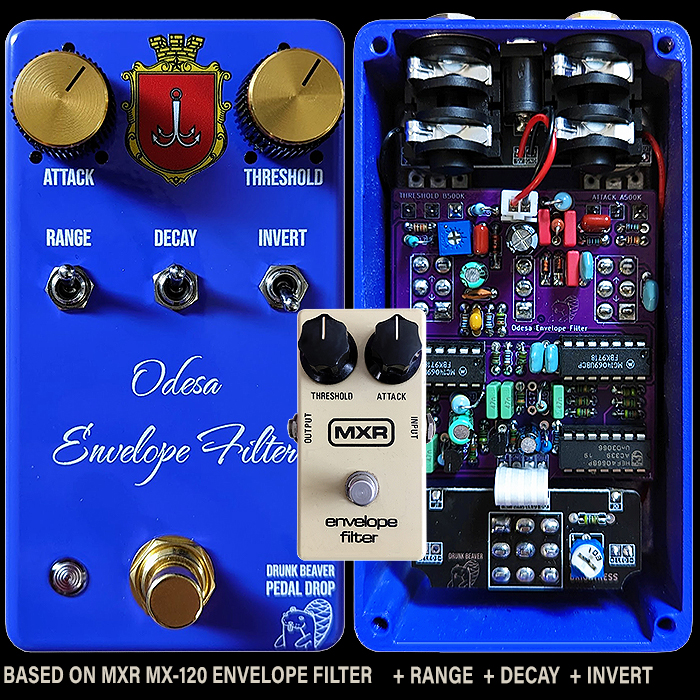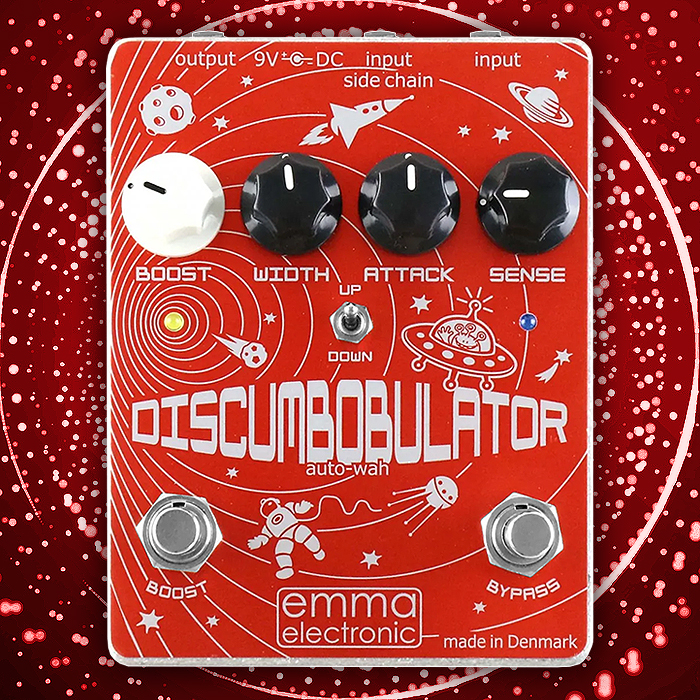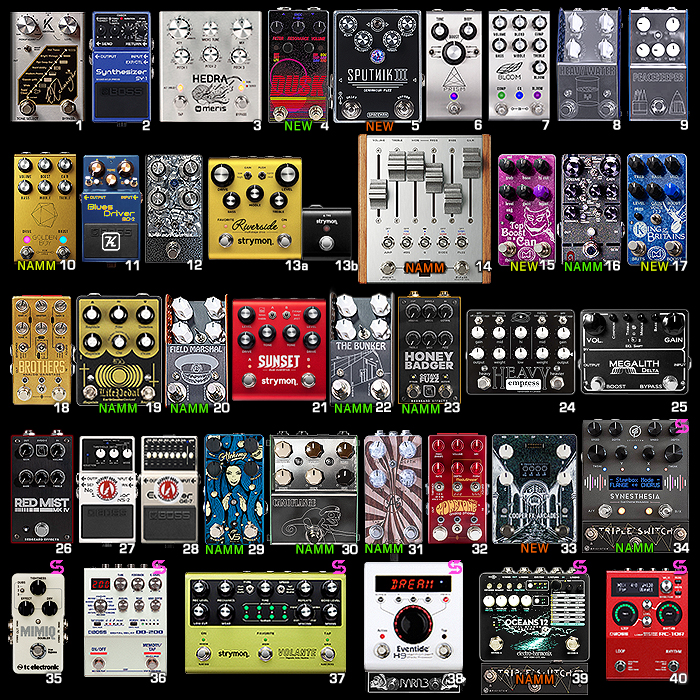Which Filter Pedal is Right For You?
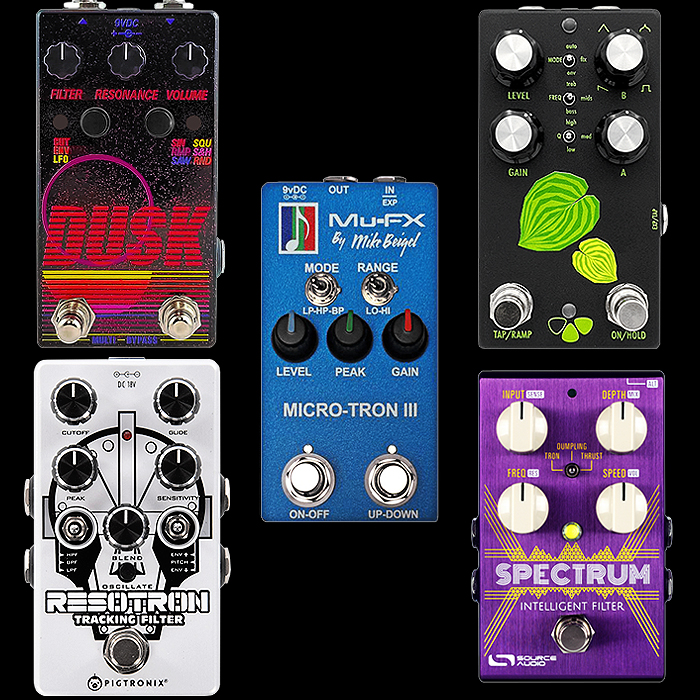
I recently featured the Dr Scientist Dusk and stated that I was pretty much 90% sure that it was the right filter pedal to be rotated in on my current Micro-Tron III slot. I’ve seen quite a few videos on the Flower Pedals Hosta Wah Filter too, and a couple of other examples which are sort of niggling at me as to whether I’m fully properly informed. Ever being the one to make sure that I do the appropriate amount of due diligence in the process of selecting the ideal pedal for me, I determined I should do a mini roundup of the most likely suspects to firm up my decision-making!
I still very much love my Micro-Tron III and it is of course likely to go back into rotation fairly regularly, I am though intrigued by the additional features that some of these alternatives have. The visual represents my current incumbent in the centre, with the 4 most likely suspects arranged around it in alphabetical order.
Each one contributes something slightly different and for sure has a number of new and different tones to offer. I of course love dual-footswitch pedals - so the frontrunner is most likely to come from one of those. Tonal output is obviously critical, and these are all of the compact form-factor so very similar in size. I also apportion significant importance in pedal usability - in how easy a pedal is to deploy. And things like intuitive and easy switching between functions and onboard presets certainly are key elements in my mix. I’m loving using my VS Audio Alchemy Analog Chorus with Presets - as when you include the manual mode - you have 7 alternative voicings you can easily and instantly switch between with the right-hand-footswitch. I will do a separate follow-up to share my delight in using that pedal!
For this article it’s about figuring out which combination of characteristics and abilities best suits my own preferences and situation. There may be some already-favourites in the running, but I will attempt to be fully objective in comparing the merits of the Dr Scientist Dusk, Flower Pedals Hosta, Pigtronix Resotron, and Source Audio Spectrum. I will then proceed to declare a winner for me, and advise you on what my general recommendations and pecking order are here!
Mu-Tron Micro-Tron III/IV Envelope Filter - $279
Note that I have the MKIII version of this exactly as pictured - which is the first of the compact versions of the Micro-Tron and was initially introduced at the 2017 Winter NAMM show. The current pedal has different silver graphics more inline with the older Mu-Tron pedals, but otherwise looks identical. Controls could not be simpler here - you have 2 toggle-switches for Mode : Low Pass / High Pass / Band Pass, then Range : Lo / Hi; and3 knobs - Level, Peak, Gain. It of course has dual footswitches for a nifty direction reversal on the filter. This is just a classic gorgeous sounding analogue filter which 99% of the time for me stands in on Auto-Was duties. It's imperative that this core function is maintained for any pedal I choose to rotate in - in its stead. As far as core function and tone is concerned I could not be happier - this does everything I need to and want this pedal to do - I guess besides having the ability to set two different wah-points to oscillate between - as is possible on the Flower Pedals Hosta. This pedal is certainly not going anywhere far, and I will for sure have it in fairly regular rotation, I just fancied a change here - with a few more alternative functions and voicings!
Dr Scientist Analog Multi-Mode Filter with 5 Onboard Presets - $199
Obviously I've detailed this one fairly recently, and it comes into this roundup / head-to-head as a sort of frontrunner. Like the Flower Pedals Hosta this has 3 modes:
- Cutoff
- Envelope
- LFO
Where the Cutoff is a sort of resonant filter with set frequency - but you can also use an expression pedal (OBNE Expression Slider!) to get that lovely swoosh effect. I deliberately moved away from a physical wah treadle style pedal to make it easier to apply those kind of tones with a more fixed-wah / auto-wah style solution. What I particularly like with the Dusk is the intuitiveness and ease of its controls - and the fact that there are footswitchable onboard presets. Having those modes controlled by push-buttons with colour-coded LEDs is a really elegant solution - and does away with that slightly annoying back and worth dialling typically required for knob-based secondary functions. I feel this will cover my basic Micro-Tron functionality, but it's strength is more in the extras here - while possibly the Flower Pedals Hosta is a closer match to replicating and improving on the exact purpose for which I use the Mictro-Tron for currently. Then it's about all the possibilities afforded here - and which modes and functions I am likely to use and deploy overall. I will determine in the Final Thoughts below exactly where I have settled!
Flower Pedals Hosta Analog Wah Filter - $279
This is a 3-mode extended range filter pedal which covers quite a bit more ground than my incumbent Micro-Tron III. At its core is a classic CryBaby-style Red Fasel Inductor - and you have direct control over 4 parts of the analog wah circuit - Level, Gain, Frequency and Q. Level and Gain are knobs, while Frequency and Q are 3-way toggle-switch selectors - Frequency : Treble/Mids/Bass, and Q : High/Medium/Low. The three modes per the upper most toggle-switch are:
- Auto
- Fixed
- Envelope
Knobs A and B have a number of primary and secondary functions depending on which mode you are in - including setting two frequency points for the fixed wah that you can toggle between with the Tap/Ramp footswitch - for an amazing pseudo-wah pedal effect. For different modes these parameters are upper Ramp Speed and Ramp Time. They also control Waveshape and Tap-Tempo Divisions.
So there's a quite a lot under the bonnet here - and obviously you need to work those slightly niggly secondary functions - but this pedal is hugely capable and really great sounding. It looks to do a couple of different things to the Dr Scientist Dusk - but does not have that one's onboard presets or easy mode / sub-mode switching. There is plenty to like here though!
Pigtronix Resotron Analog Tracking Filter - $249
This is another really cool take on the format - placing the auto / LFO function on a specific Oscillate push button switch - and having 2 x 3-way toggles to select between High Pass Filter / Band Pass Filter / Low Pass Filter, and Envelope Up / Pitch / Envelope Down. You then do your shaping courtesy of 5 control knobs - Cutoff, Glide, Peak, Sensitivity and Blend. In some ways this is intended to be more of a synthy style filter - but it has significant overlap in its core Envelope Filter functions. For me it could of course have done with a second footswitch - there would have been all manner of clever things you could have done with that. Overall the range covered here is pretty extensive, but the Dusk and Hosta have it beat for cleverness in application. This was on my wishlist for quite a while, but I feel that it's probably a generation behind the likes of the Dusk and Hosta now. For sure it will suit some players very well - particularly as I said those looking for more of those silky synthy glissando flavours. It for sure sounds pretty great.
Source Audio Spectrum Intelligent Filter with 6 Onboard Presets - $199
Source Audio bill this as the Ultimate Envelope Filter - where the secret sauce here really is the connected Neuro App - which allows you very much to sculpt and shape your own filter to your own specifications. It's one of those pedals - like the TC Electronic ones too really - where they sky is the limit in terms of configurability, and where the pedal itself doesn't really represent the full picture. In this instance you have 6 onboard modes which also double up as presets :
- Tron - Based on vintage Mu-Tron III Envelope Filter
- Dumpling - Based on Lovetone Meatball Envelope Filter
- Thrust - A sort of Auto-Wah with similar edge to OC-2
- Punch - Band Pass Slap Back Fast Attack Envelope
- Vocal Synth - Dry Signal mixed with Gated Fuzz and Monophonic Sub-Octave through 3-Stage Phaser!
- Octave Lead - The Thickest Filter Sound - Wide Range Envelope
The first 3 are marked on the pedal, while the second 3 take over when you hit the Alt button on the top edge of the pedal - like for all the other secondary functions too. Controls knobs all have secondary functions as indicated in parenthesis - Input (Sensitivity), Depth (Mix), Frequency (Resonance), Speed (Volume).
Of all these pedals - this is undoubtedly the most feature rich in its algorithm creation and shaping. While for me some of the things the others do make them more usable and intuitive for live playback. Here having a second footswitch to step between Modes / Presets and apply momentary secondary effects would have come in really handy. Source Audio needs to wake up to the potential of that.
Final Thoughts
I'm very happy with the overall selection here - and each of these pedals has something to recommend it. The overall most capable and feature rich on purely the algorithm front is the versatile and digital Source Audio Spectrum. If you're willing to put in the time you can wholly shape something entirely of your devising - there is some really powerful tone generation going on inside his pedal - but it is digital like I say, and it is slightly limited in its actual playback abilities. For me the modern dynamic of having a second footswitch to instantly engage expression-like functions, adjust playback and scroll through presets has become almost second nature - and any builder not exploring this is a generation behind the pace.
So in terms of ultimate versatility - the Source Audio Spectrum surely wins out, but like I said - it is digital and does not have those smart playback features I gravitated towards. It also has those rather annoying secondary function knobs where you keep needing to dial the knob back for the primary setting after you've adjusted the secondary - go DigiTech or Pigtronix on this rather with dual concentric / stacked knobs!
Both the Spectrum and Dusk have onboard presets - but only the Dusk allows you to step through those during playback - using the right-hand footswitch. I've learned that pedal usability is very high on the scale of satisfaction - and even though in some ways the Flower Pedals Hosta is more suited to my precise needs, I much prefer the controls and topology of the Dusk pedal. The one main thing the Dusk cannot do which The Hosta does is the pseudo-wah effect where you can set two frequency points to range between for a full wah-like experience.
In this company then the Resotron looks a little off the pace in many ways - albeit its core analog filter sounds amazing still - it's just that combination of form factor, usability and utility that leaves it somewhat behind - but I can see it appealing to a certain kind of player.
As with many of my recent overviews the final final results on this have been somewhat inconclusive - I feel I will need to try both the Dusk and Hosta and live with them for a while to see which I get on with better. As a first off though I will be starting with the Dusk - which overall somehow appeals to me more than The Hosta. It's often the case that I find areas that need improvement and I'm often left hankering after a V2 model to cover the shortfall present in the current edition.
So in essence there are really 3 winners here - but I prefer the playback features of the Dusk and Hosta - and the overall form-factor and execution of the Dusk! Which is your favourite?

